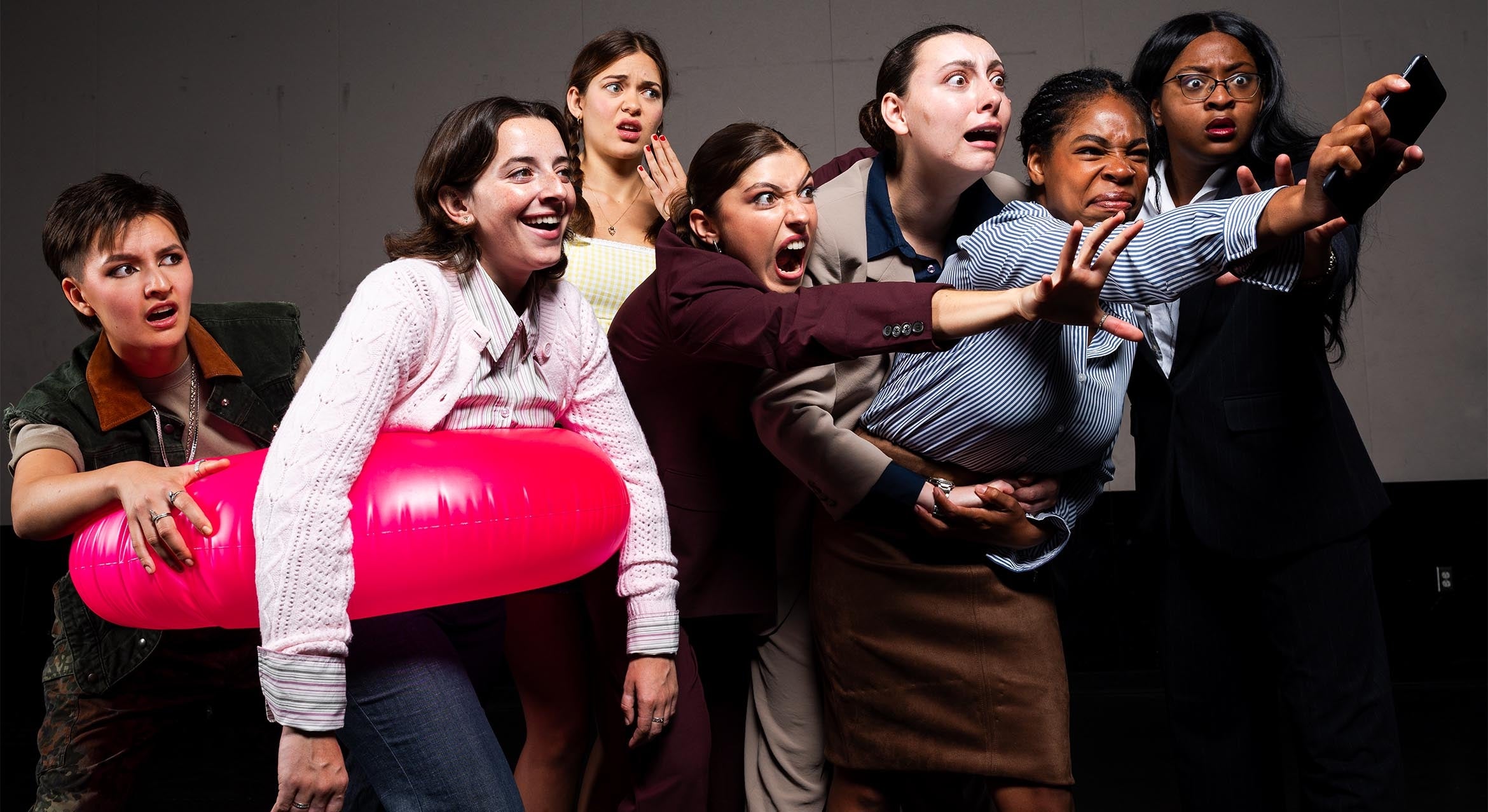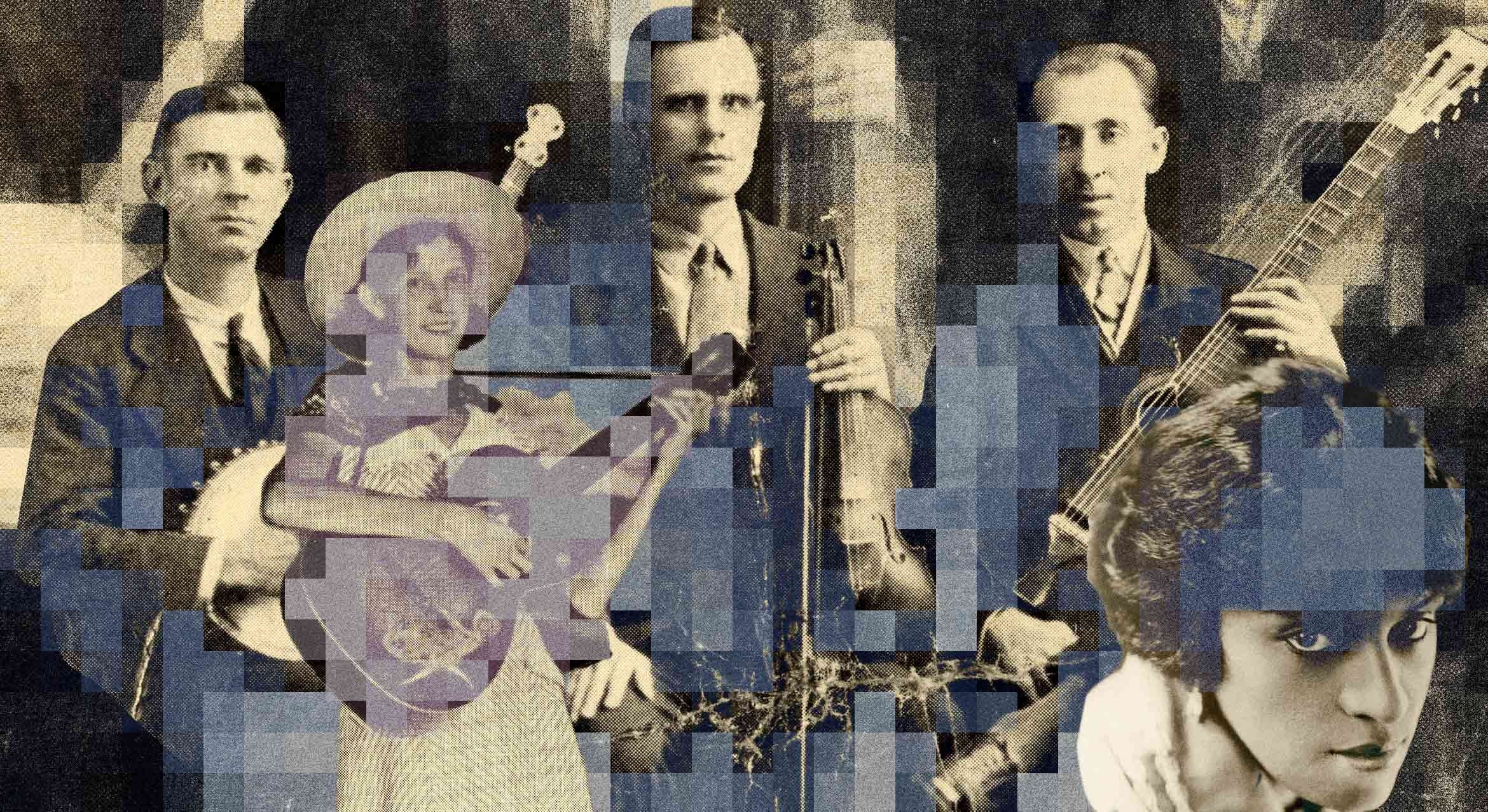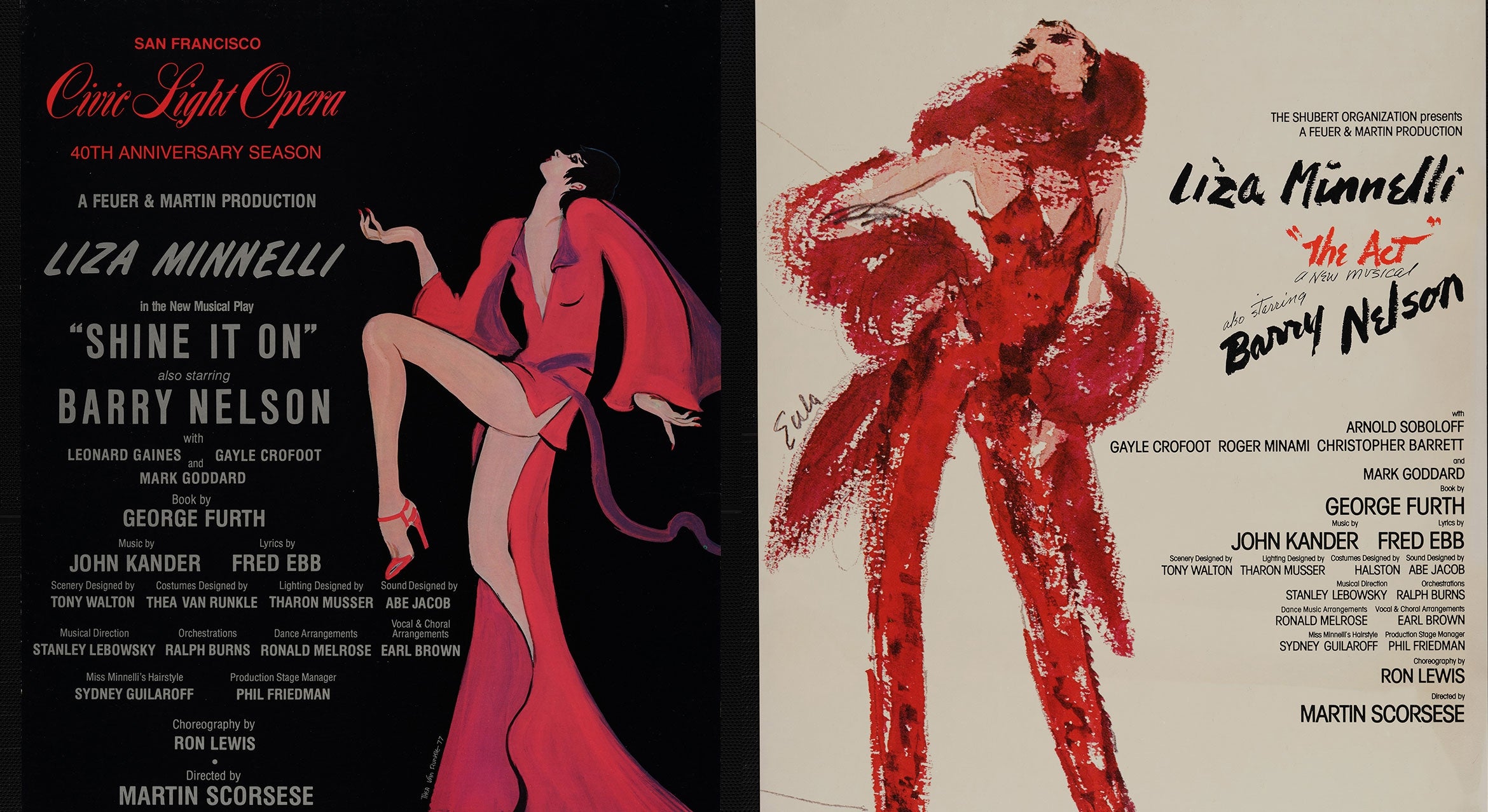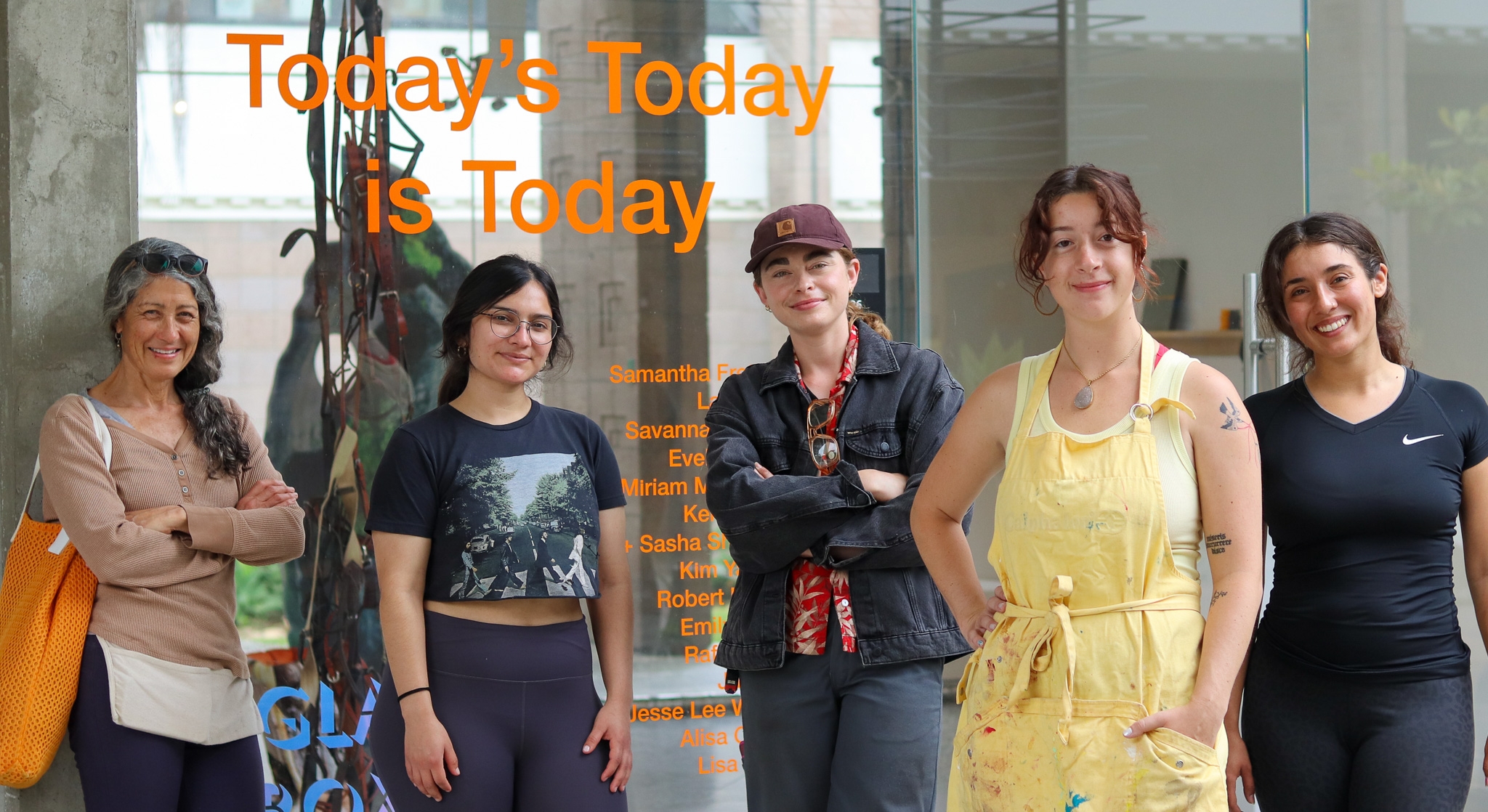
Art shows allow people to interact with concepts in three dimensions, but also relationships. The exhibition “Today’s Today Is Today” highlights the unique connections and relationships between artists and their mentors, peers and professors across a department.
Organized by art professor Kim Yasuda and her spring quarter independent study students, the exhibition engaged a multi-generational network of artists — students, staff, faculty and alumni — who share a common thread from their time spent within the UC Santa Barbara arts community. Faculty generally work one-on-one with independent studies students for units, focusing on their individual practice, but Yasuda, who has taught art at UCSB for 32 years and retired in June, said it was important for this group to create and curate their work collaboratively.
In bringing together artists at different points in their career, the exhibition created a space for dialogue between generations while also providing student artists with an outlook into the art sector after college. Programming included artist talks and roundtables of students, alumni and faculty.
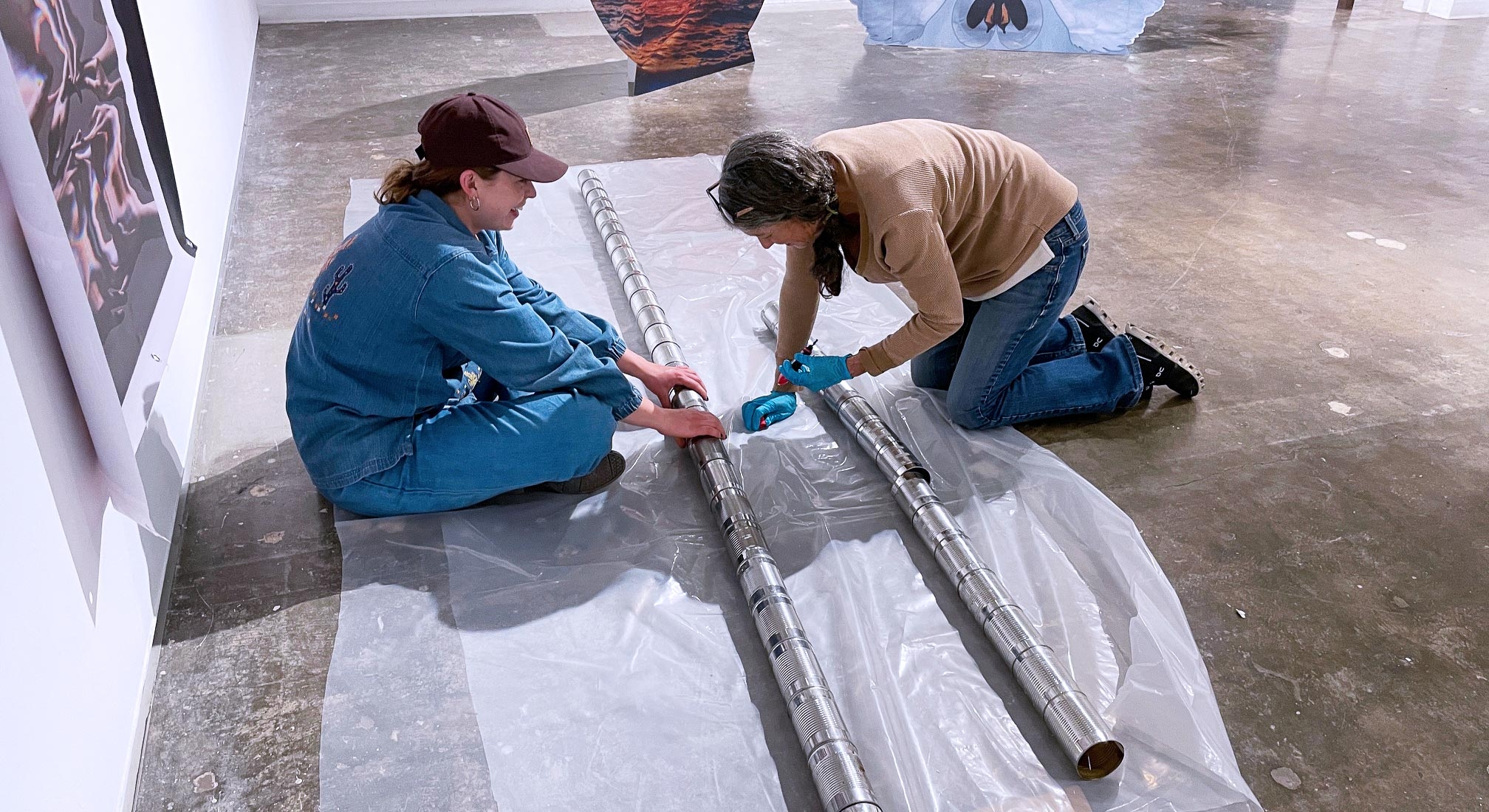
Lara Love, who transferred to UCSB to major in art, applied for the exhibition space in the art department’s student-run Glass Box Gallery, slipping in Yasuda’s name — unbeknownst to her — among the student artists by writing it backwards. Love hoped her mentor would make and exhibit work alongside her and the other students, a request she soon bowed to.
In addition to Love and Yasuda, the exhibition presented 12 pieces by featured alumni artist Samantha Fretwell ’10, who double majored in art history and studio art before completing her MFA at New York University. Also displayed are works by students Savannah Arroyo, Miriam MacMillan and Evelia Rosas; alumni Robert Huerta MFA ’18, Lisa Mihm MFA ’01, Emily Baker MFA ’16, Alisa Ochoa MFA ’03, Jay Lizo MFA ’05 and Jesse Lee Wilson MFA ’05. The exhibition also includes Art Department staff, director of labs Joel Sherman ’00 and sculpture lab technician emeritus Ken Yokota, who received his MFA from the department in 1985 and was on staff from 1979-2019.
Through their decades-long tenures supporting students as they learn to produce and fabricate artwork, Sherman and Yokota have worked with thousands of students and faculty.
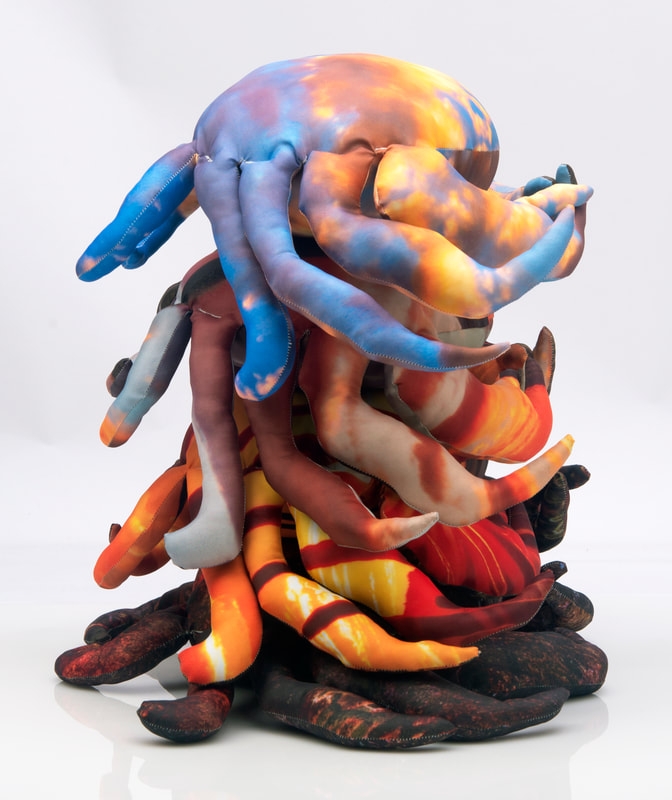
With her student Love, Yasuda created a new sculpture for the show called “Kicking the Can Down the Road (Endless Austerity Column)” (2024), assembling a 30-foot row of cabled tin cans that she had saved during the Covid-19 quarantine.
“These cans connect me to childhood memories of my mother hoarding food provisions, as ‘you never know’ or ‘just in case’ measures for uncertain times,” said Yasuda, whose mother was incarcerated during World War II as a Japanese American internee. Stashed alongside the World Book Encyclopedias in Yasuda’s childhood home were rows of canned Spam or boxed saltine crackers “in anticipation of a war that could break out again without notice and everything could be taken away.” Just as the exhibition title — “Today’s Today Is Today” — alludes to the urgency of a present moment, Yasuda’s piece references her mother’s relationship to her memories and past material history that ultimately informed her sense of time.
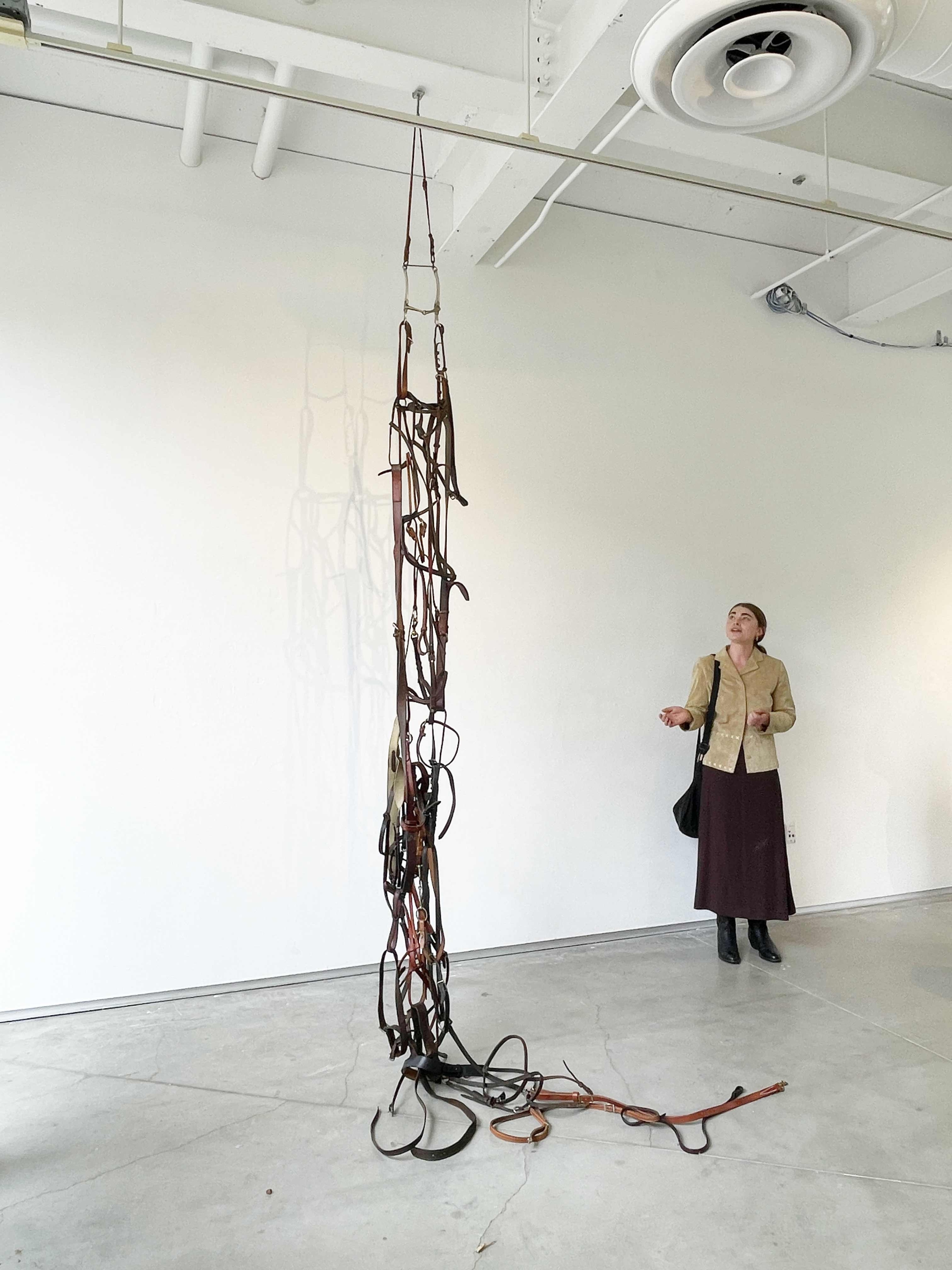
Fretwell, a working artist in New York, came up with the exhibition’s title as a riff of a slogan she saw posted in a diner. She later used the slogan to title a new work created shortly before the 2016 presidential election. Fretwell’s printed cardboard stand-ups, soft sculpture and mixed-media work reproduce the aesthetics of consumer culture around celebration and nature. Her pieces reference the irony and complex visual language that is shared around these moments and how people relate to their collective desires through language, fantasy and decoration.
“Her work highlights the reproduced renditions of the picturesque — such as idyllic beachscapes, featuring an array of affirming slogans, Fourth of July motifs, domesticated animals and nature’s top tourist destinations,” Yasuda said. “Sam draws these directly from shopping mall and mail order catalogs such as items printed on shower curtains and party paraphernalia; then modifies them through her photography to circulate back through the economic supply chain of industry vendors who reproduce her work as fabric and cardboard cutouts.”
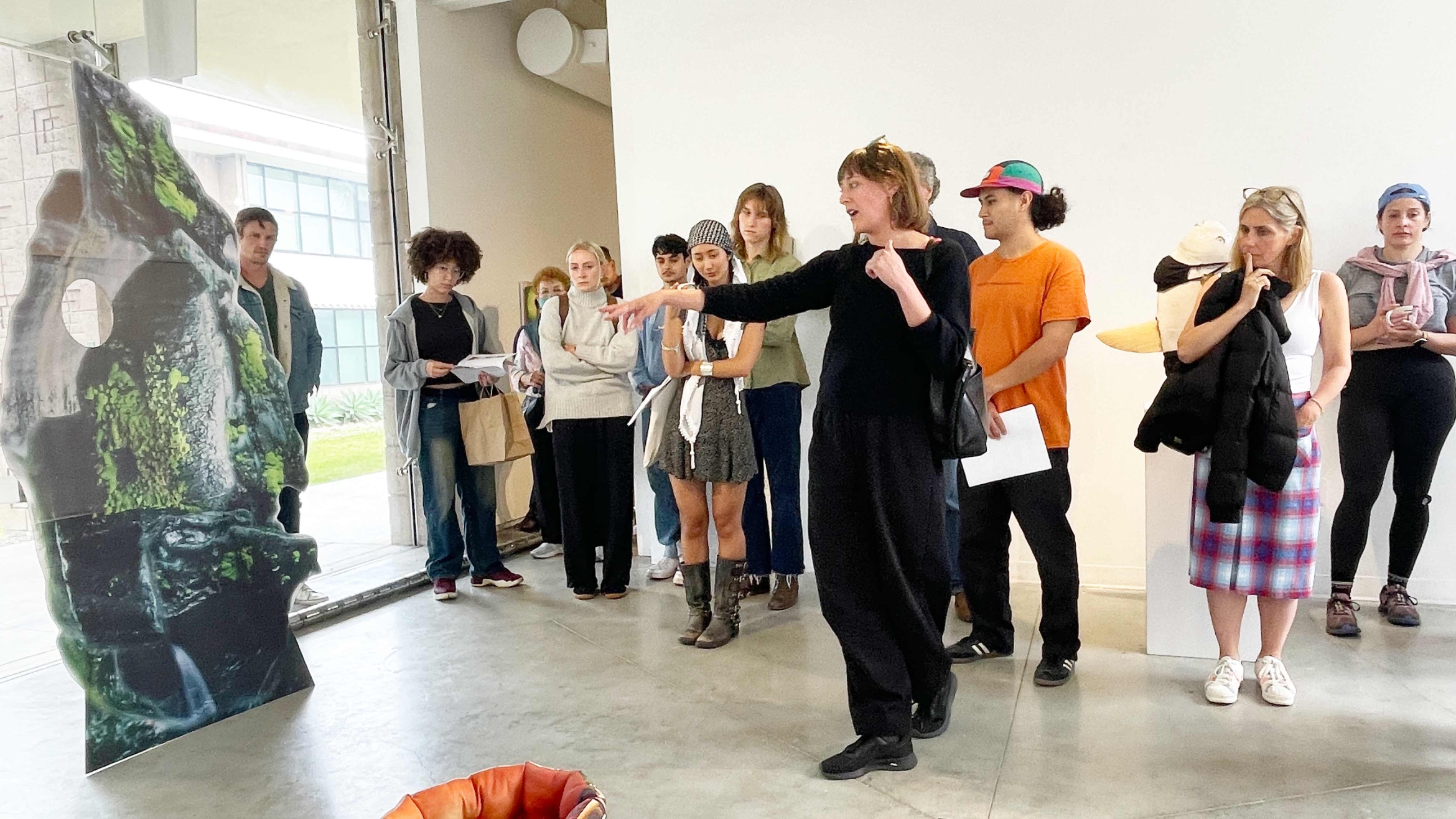
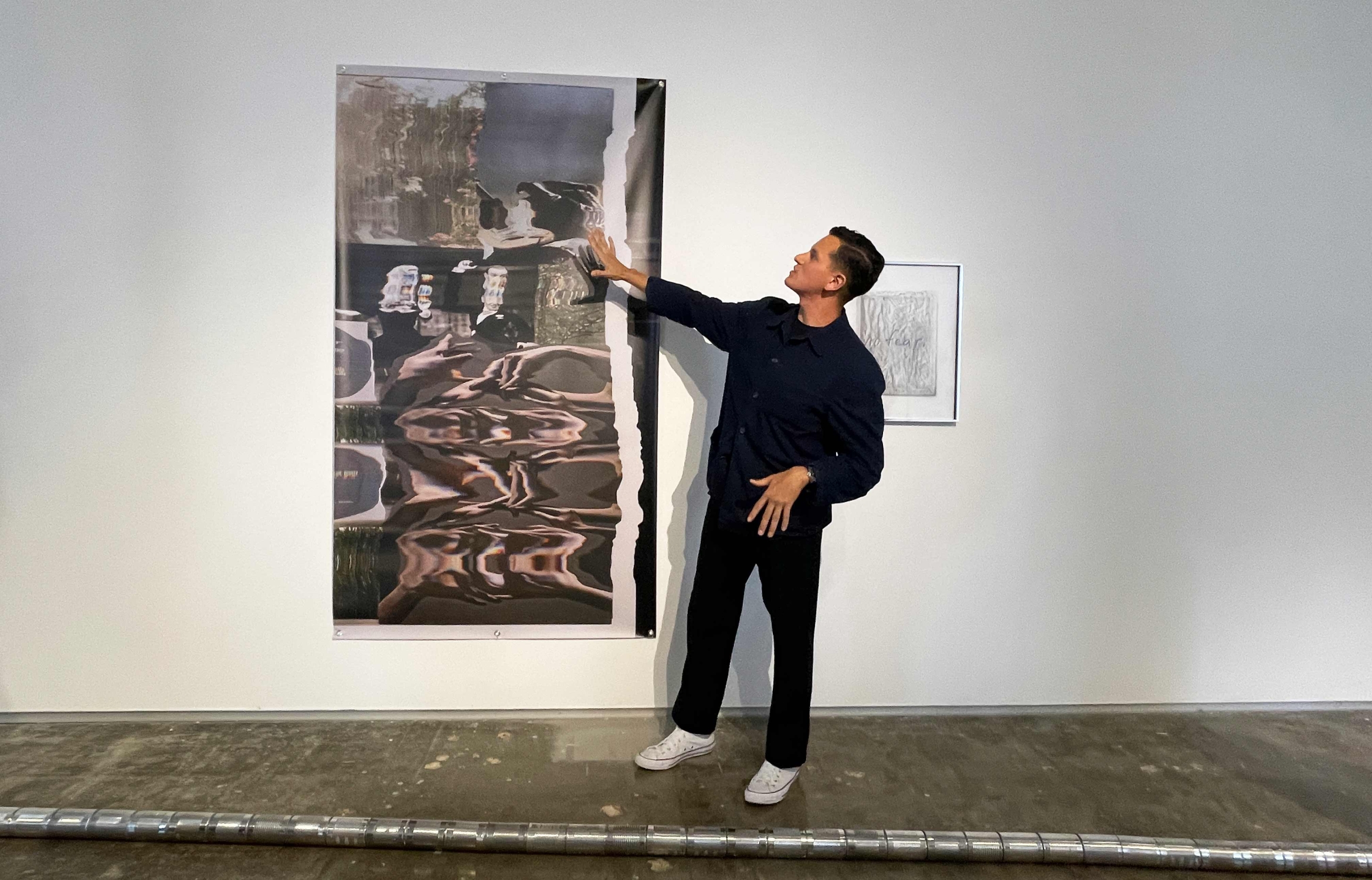
“The theme for the show was also in the forming of the community and collaboration between different generations of artists from UCSB,” Fretwell said. “Kim Yasuda was able to bring together current and former students of hers to create an exhibition that I think is a celebration of the beautiful, the absurd, the handmade, the digital, personal narrative and responses to struggle. But most of all it’s a celebration of artists creating space for community. That’s Kim’s main medium: bringing people together, facilitating collaborative projects, always finding a way to get to ‘yes.’”
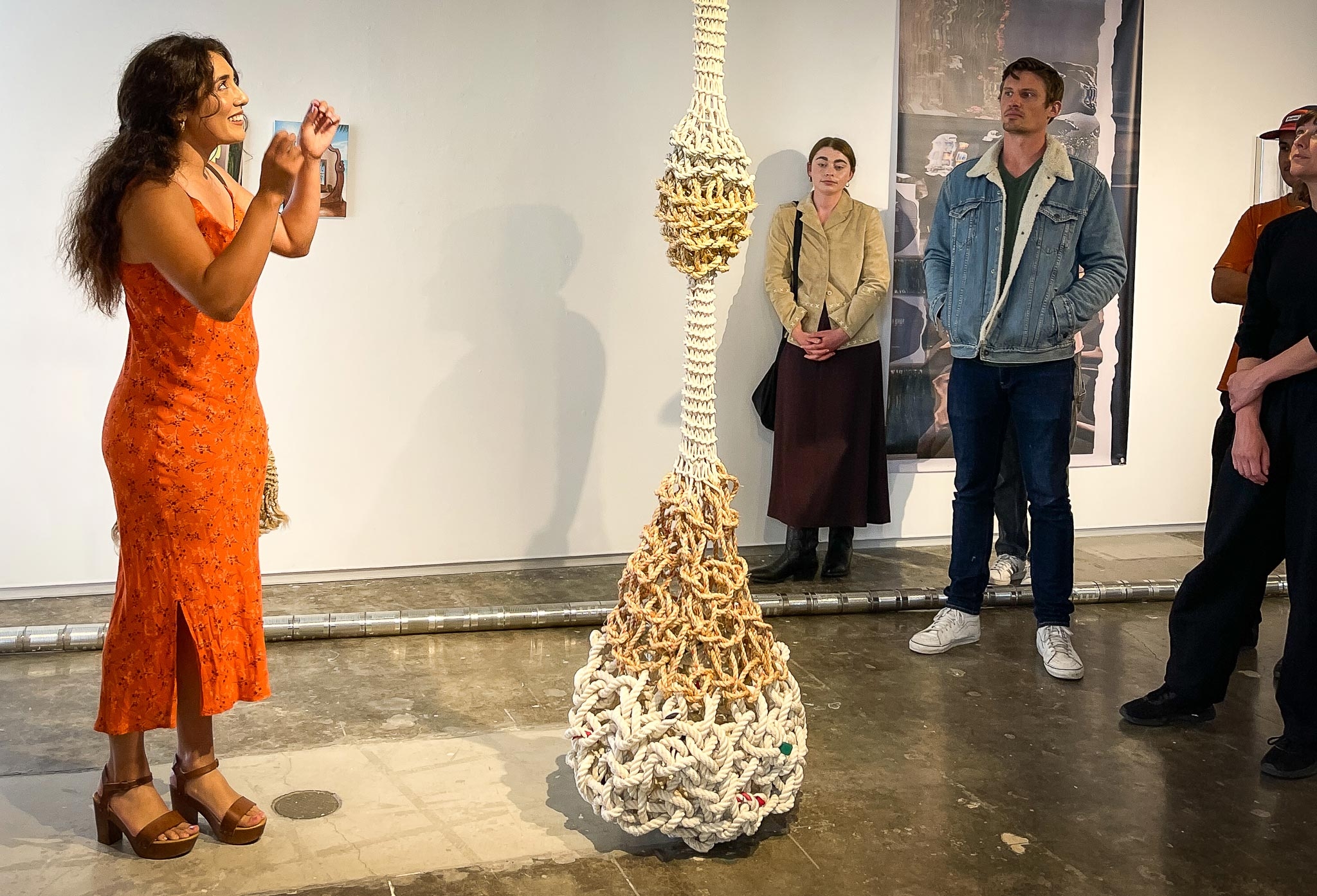
Over the years, Yasuda has collected many things to use as art-making materials.
“Everything I come across is a possible resource for a sculpture student to activate,” she said. In this show, students Love and Arroyo repurposed materials from Yasuda’s studio. Love’s suspended sculpture is made with old leather bits and straps from horse bridles that Yasuda gathered from the Hearts Therapeutic Equestrian Center. “The use of the leather in this piece connects with my other work about enclosure and confinement,” Love said. The title “Workhorse (Kim gives Lara permission to goof off)” alludes to Love’s rigorous work ethic with her teacher’s permissive mentoring style.
Arroyo’s large crocheted piece “Bunky Mama” is named after Yasuda’s old wooden sailboat and made out of its anchor rope. “On that boat, her daughter learned how to walk,” Arroyo said, noting that she learned to crochet from Yasuda in 2023 and the piece conjured memories of learning the craft from her professor. She also used an assortment of ropes from her stepfather and the Art Department foundry, pieces with their own associated memories.
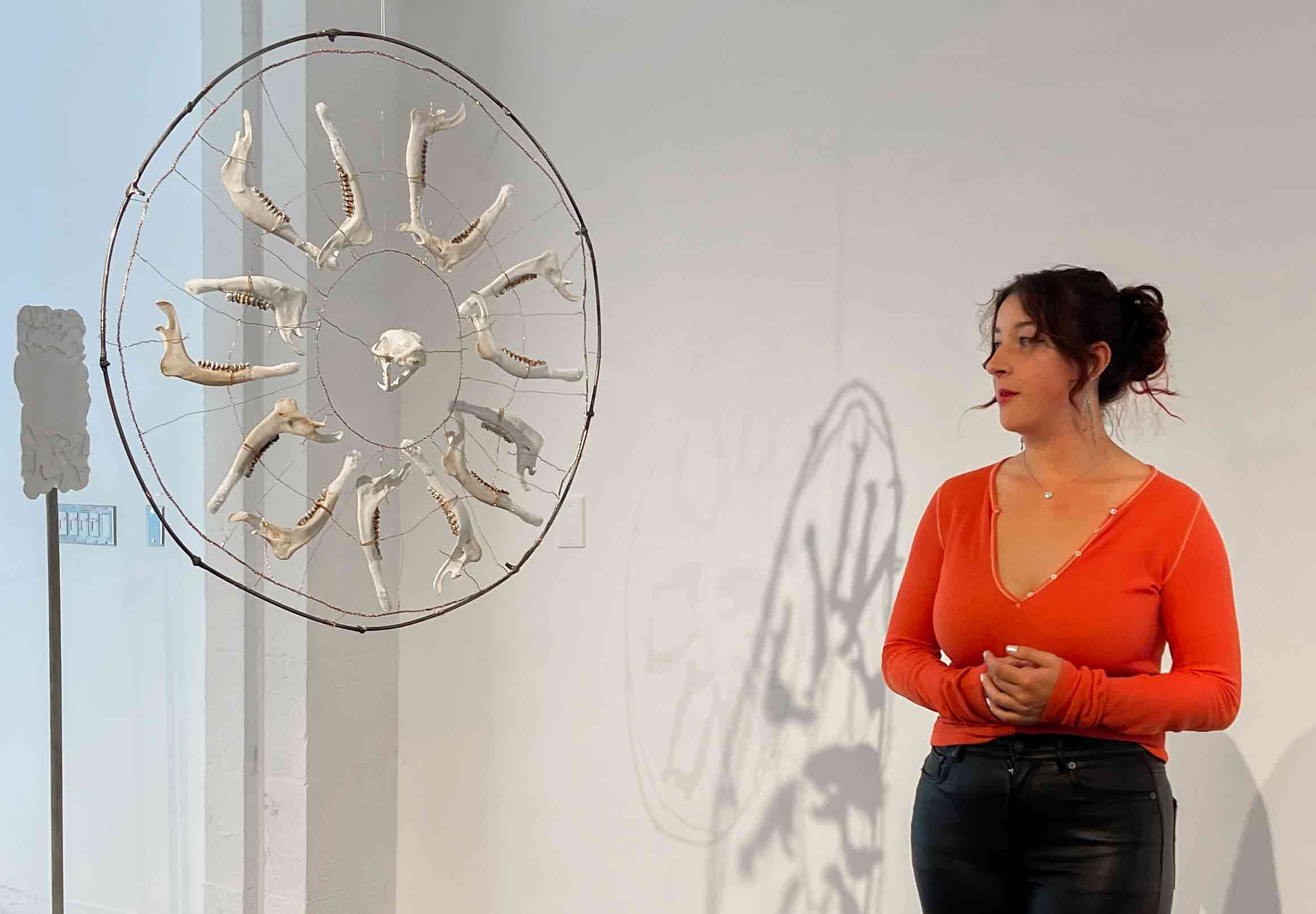
MacMillan’s hanging sculpture “Relic for the Modern Consumer” is made from bobcat skulls and deer jaws from a taxidermist and resembles a clock to mark the passage of time. “In consideration of Catholic relics, which contain the bones of saints and are thought to cause miraculous healing and inspiration of faith,” she said. “I consider the way we honor the lives and deaths of those that touch our lives.”
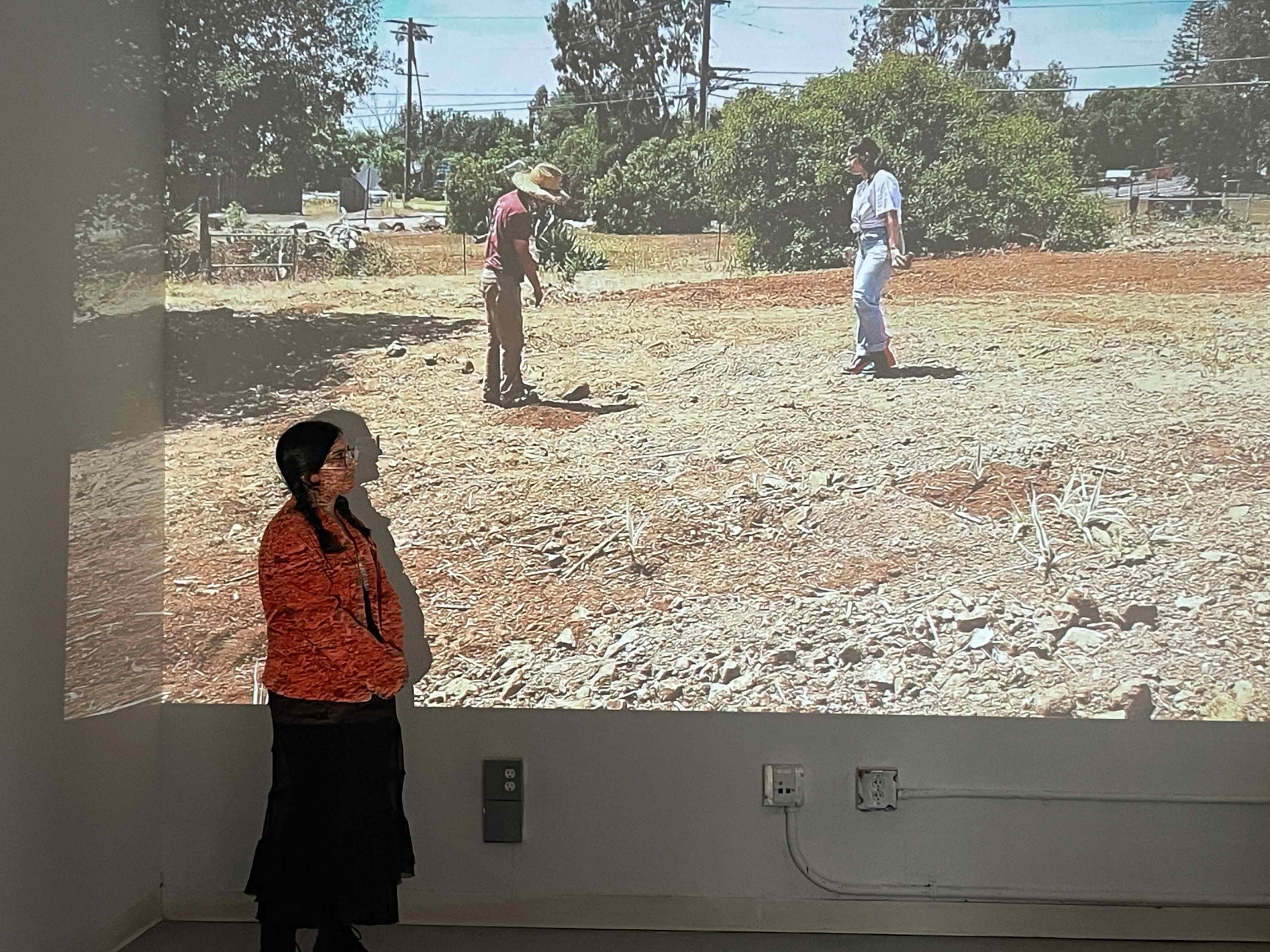
For the video “Landed,” Rosas traveled by train back to her family nursery in Vista, California to document by drone with her brother the land that they grew up on that no longer belongs to their family due to reinstated property lines. “This land, despite never being ours, meant so much to us and we wanted to commemorate it in a way that spoke to our experience playing on it as children,” Rosas said.
Talking about how the exhibition evolved, Yasuda said it was “organically and iteratively — atypical of most curatorial practices — honestly, one artist and their work inspired another to be included and much of the work I had in my possession as gifts that students had given me over the years.”
Yasuda said she hopes that these opportunities to reconnect alums will deepen the UCSB artists network.
Debra Herrick
Associate Editorial Director
(805) 893-2191
debraherrick@ucsb.edu
